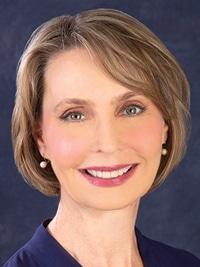The last generalists
Emily E. Volk, MD
June 2022—You’re probably familiar with the expression “jack of all trades, master of none.” While that sounds disparaging, it’s actually taken out of context. The original quote in its entirety is, “A jack of all trades is a master of none, but oftentimes better than a master of one.” It was intended as a compliment for someone who had good, broad knowledge.
The widespread misinterpretation of that quote supports a common idea that no individual can be really good at a lot of different things. But pathologists challenge that concept every day.
While many of us subspecialize, we are able to fall back on our broad training when circumstances require it. Such may be the case when encountering pathologic findings that indicate a disorder not commonly found in our area of expertise, or findings that indicate a systemic illness. Many of us find that we have to be experts on different things on different days and in different parts of our career.
Our abilities have been on display throughout the COVID-19 pandemic, when a lot of hospital pathologists had to get really good at understanding molecular testing. Even if they sent the tests out instead of running them in their own labs, many generalist pathologists from around the country became the local experts in microbiology. It’s something they did quite well, serving not only their hospital patients but also shoring up the local public health brain trust.

Dr. Volk
I have always appreciated the breadth and depth of our specialty. As a resident I felt particularly drawn to the clinical complexity and patient-facing nature of transfusion medicine, but I also loved the visual problem-solving and clinical correlation required of surgical pathology and cytopathology. I wound up doing a fifth year of residency with a focus on surgical pathology with an emphasis in gastrointestinal pathology, but I also managed to spend time improving my abilities in transfusion medicine. I spent mornings with a renowned group of GI pathologists and afternoons with renowned transfusion medicine experts. I rounded out my formal training with a fellowship in cytopathology, where again I worked with renowned experts.
In my career I found that these skills, as well as many I had yet to acquire, were essential to serve the daily needs of my hospital and its patients. I had to be willing and able to handle any patient issue that came my way, be that in the form of a biopsy, a Pap test, a question concerning clinical chemistry or microbiology, or an issue related to lab management. To be clear, sometimes “handling” a question meant knowing when to work with a colleague who could provide more insights to a given problem.
 CAP TODAY Pathology/Laboratory Medicine/Laboratory Management
CAP TODAY Pathology/Laboratory Medicine/Laboratory Management
